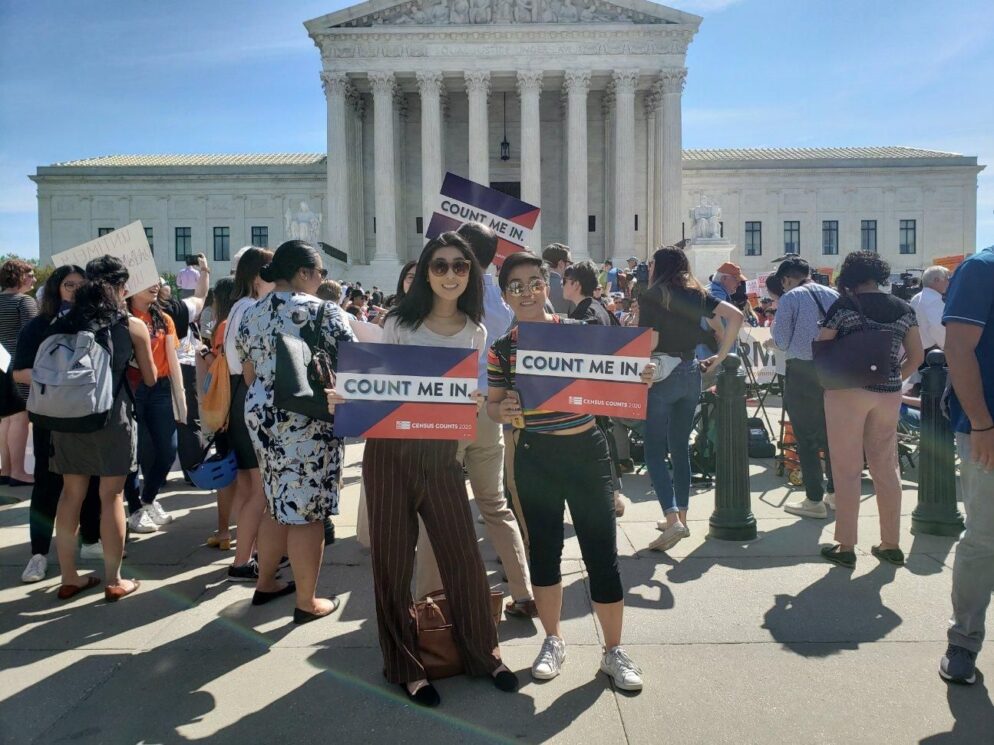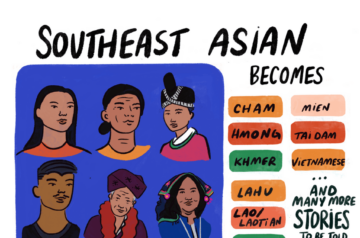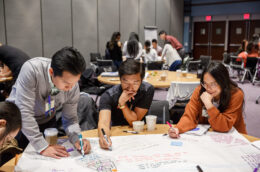The census is the largest publicly available dataset with SEAA data. It directly influences political representation and funding for our communities.
Key resources:
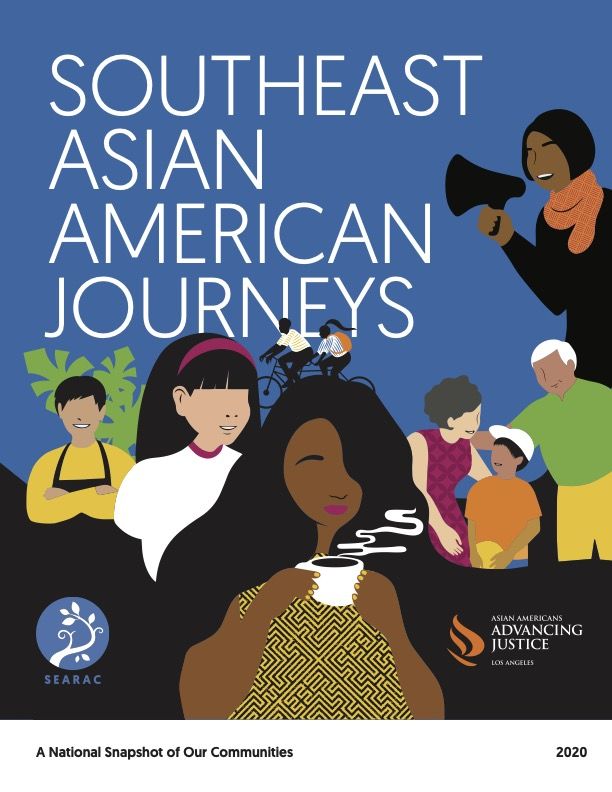
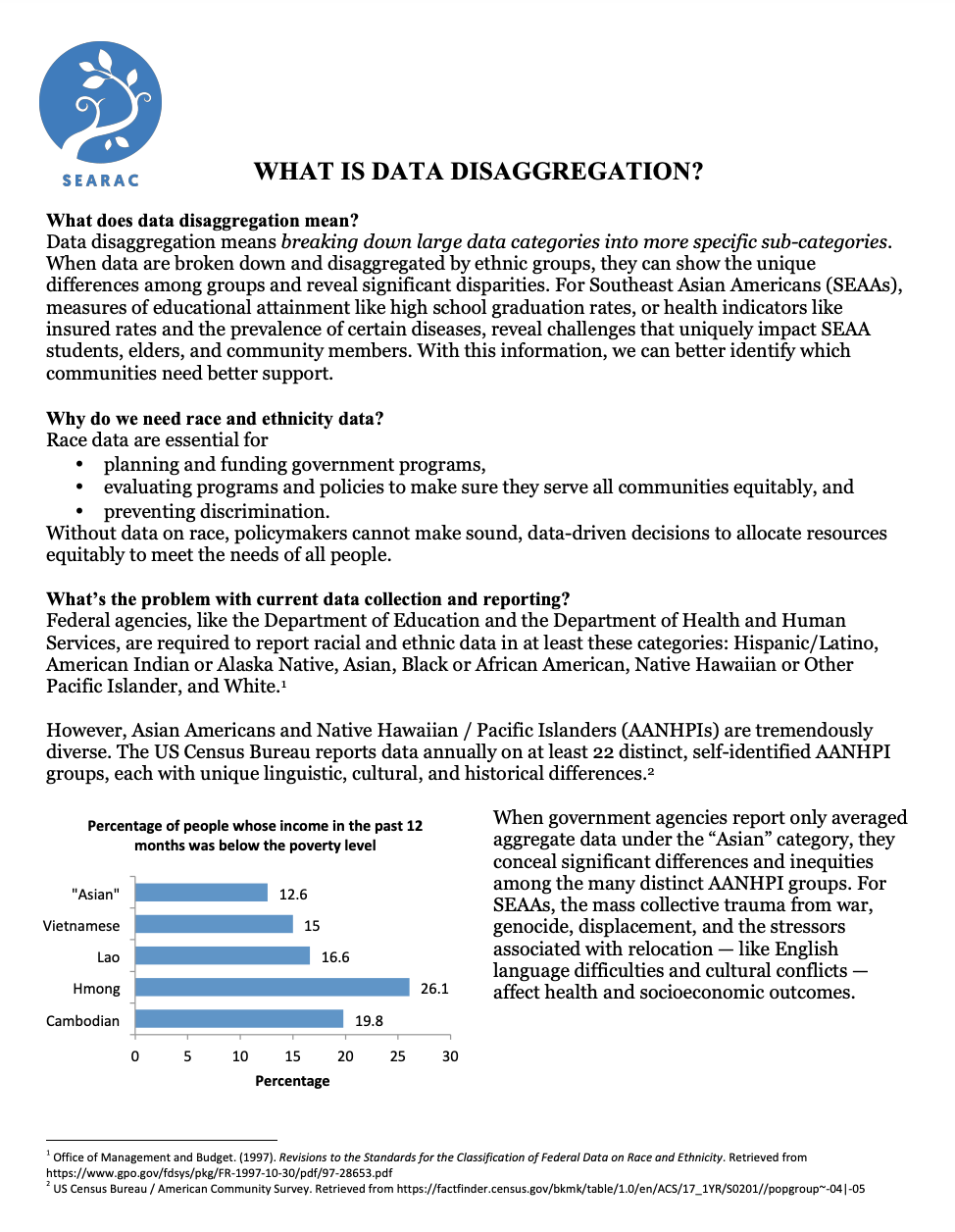
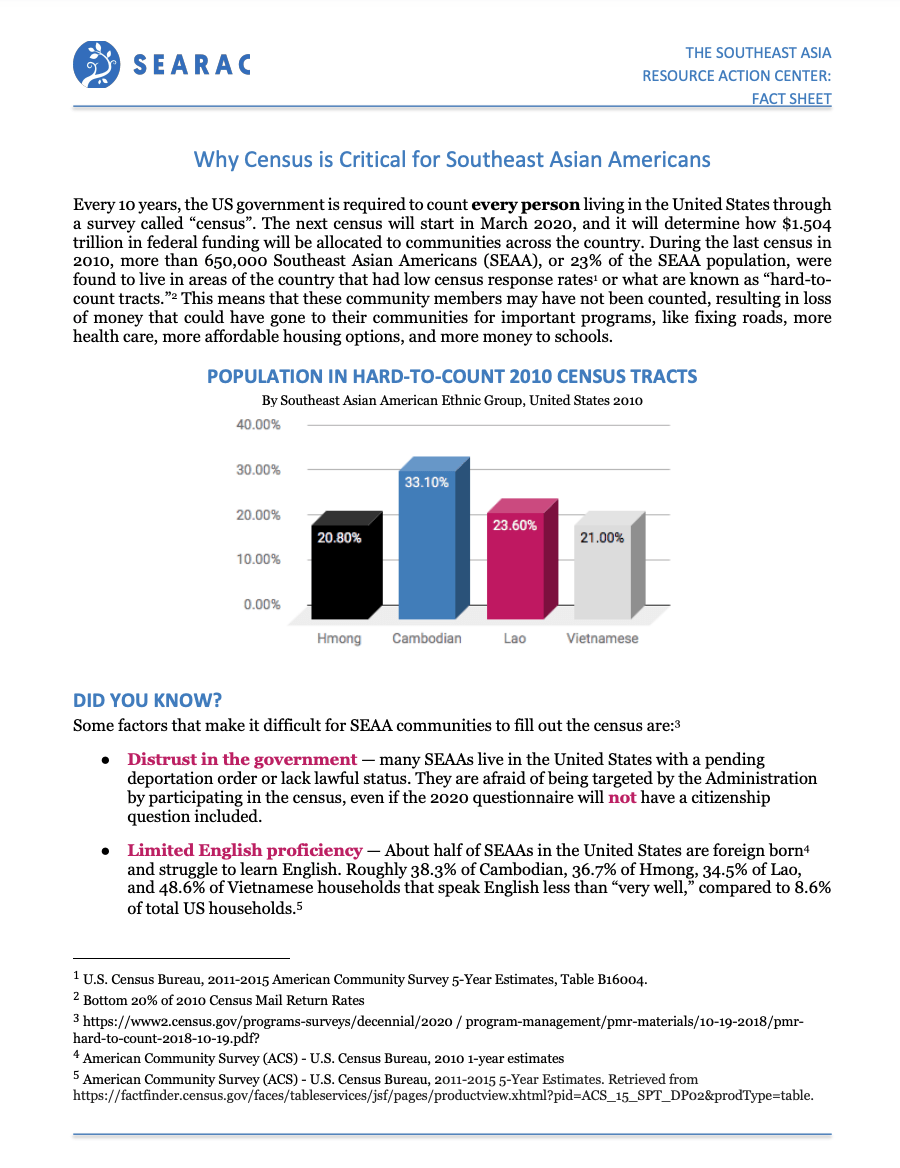
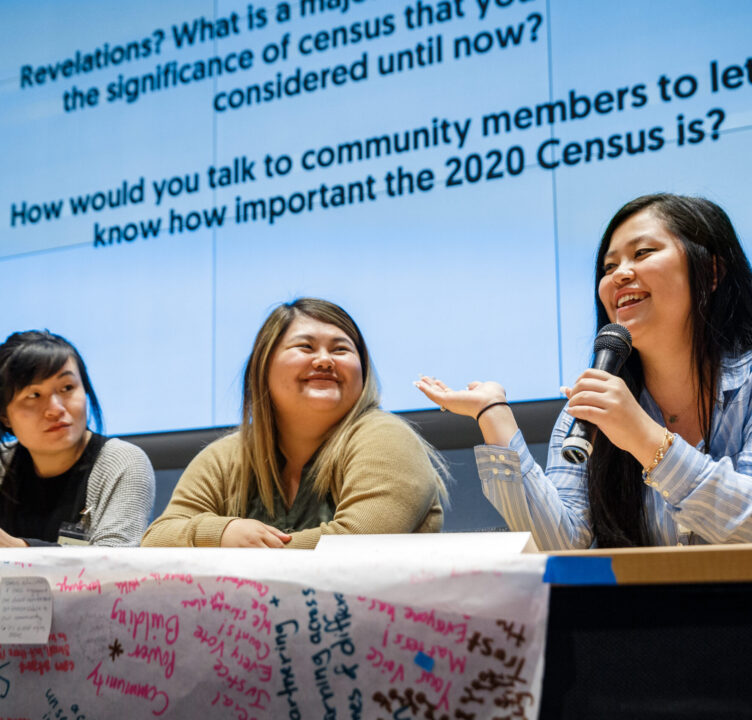
Featured story
Hmong Leaders Meet with Census Director on Hmong Misclassification
On Thursday, May 23, 16 Hmong and Asian American advocates met with Director Robert L. Santos of the US Census Bureau to discuss the need to reclassify the Hmong as Southeast Asian. The meeting comes as a result of a letter and petition with over 1,700 signatures to Director Santos asking the Bureau to address the issue and meet with community leaders.
Learn more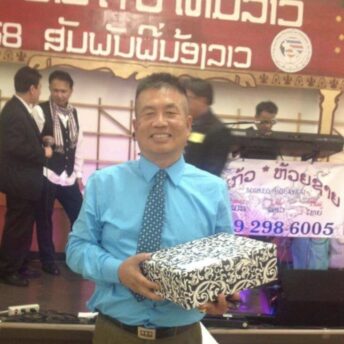
“We talk about how it is so important for us as a group of people to participate in the census, so we show up in the data. Once that data comes out, we will have information about ourselves. Right now, we don’t know how many of us live in the Bay Area, or even the city of Richmond.”
Director, Asian Senior/Adult Daycare Center
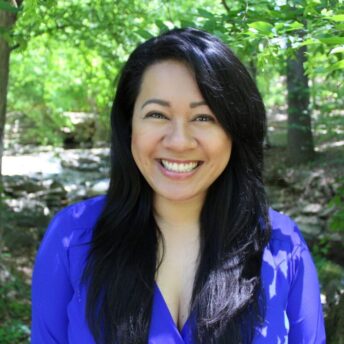
“I want to help Cambodians and other minorities be counted in the 2020 Census. We are a minority of a minority group. We are Asians, but we’re also Cambodians. There are only 260,000 of us in the United States according to the 2010 Census, so having everyone counted is important.”
Technical engineer
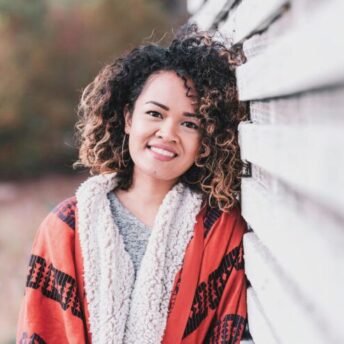
“It’s vital for us to know each other as a community, locally and nationally. Where are we, how many of us are there, and how can we use our collective numbers to be changemakers? These are questions I find myself asking when I’m planning my dance classes or looking out to a crowd during a performance.”
Director, Cambodian American Girls Empowering
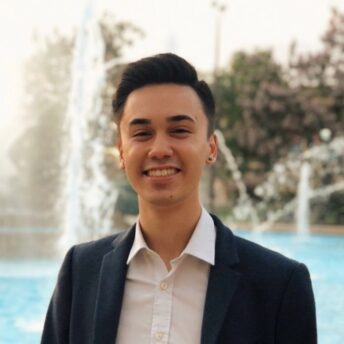
“I’m the son, nephew, and grandson of Vietnamese refugees who benefited from ESL education and other social programs, and I feel like we’ve come full circle now that I’m a first-generation college graduate and ESL teacher. I know that the type of services my school district and I are able to provide relies on data from the Census, so it is so important that educators encourage their community members to complete it.”
ESL Teacher
“When individuals are invisible in data, they remain invisible in policy conversations. To understand how groups within the AAPI community fare in higher education and the specific challenges each face, we must disaggregate data along racial and ethnic lines. Doing so will reveal where inequities exist and, in turn, unlock the full power of postsecondary education to spur social mobility, economic health, and a stronger society.”
Institute for Higher Education Policy
“Without data disaggregation, this system makes students like me invisible, our needs are downplayed, and resources aren’t offered. Data disaggregation allows for students like me to be seen, to get the resources we need, and to reach our fullest potential.”
Minnesota student
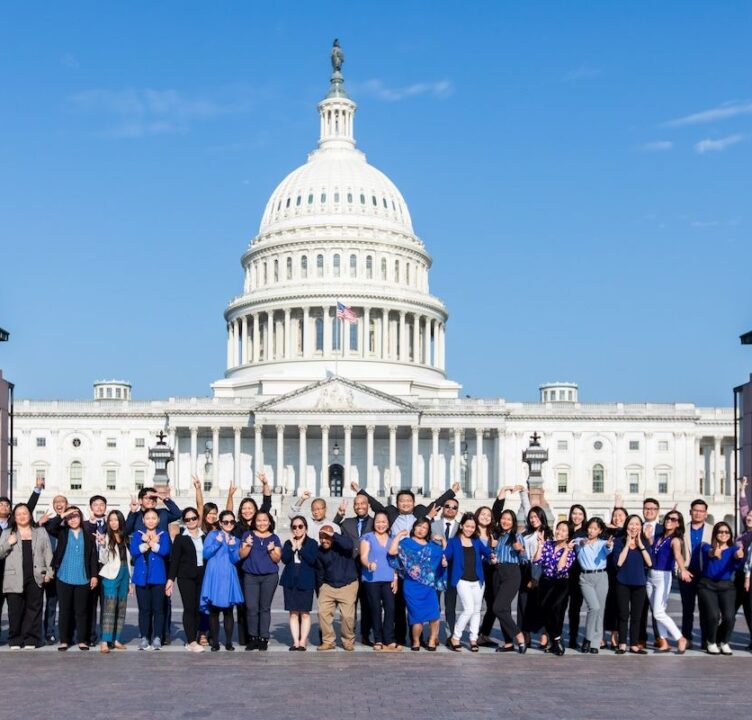
Subscribe to our newsletter for the latest updates on the SEARAC community, and to learn more about how you can get involved.
Believe in community leadership and collective power? Support SEARAC’s Leadership and Advocacy Training (LAT) by becoming a sponsor.
Sponsoring LAT means investing in people, movements, and long-term change. Join us in building the next generation of Southeast Asian American leaders. Learn more at bit.ly/2026LATsponsor
Feb 9

Over the past two years, Thuy Do, SEARAC Senior California Program Manager, has partnered with the @ocdehistory and community organizations to bring Southeast Asian American ethnic studies across California.
Thuy writes, “My experiences in these gatherings were emotional and healing, because I got to see, learn and connect with others to advance ethnic studies education through community voices.”
Read more about how community voices continue to shape the future of ethnic studies education in California at the link in our bio!
Feb 7

This is a final reminder that applications for SEARAC`s Leadership and Advocacy Training program are due Sunday, Feb. 8. SEARAC is excited to welcome our next cohort to the nation’s capital this July for our LAT program. Apply to LAT today at bit.ly/LAT2026app!
Feb 6

SEARAC`s January newsletter is now live! Check out national and California policy updates from the SEARAC team and our latest staff blog here: searac.org/news/2026-news-in-review/
Feb 4

SEARAC National Deputy Director Kham S. Moua will be joining our partners at @ncapagrams for this upcoming community briefing. Learn why NCAPA opposes the FY26 DHS funding bill and what this means for AAPI communities.
📅Feb 4 at 3 PM ET Link to register in bio
Feb 2


